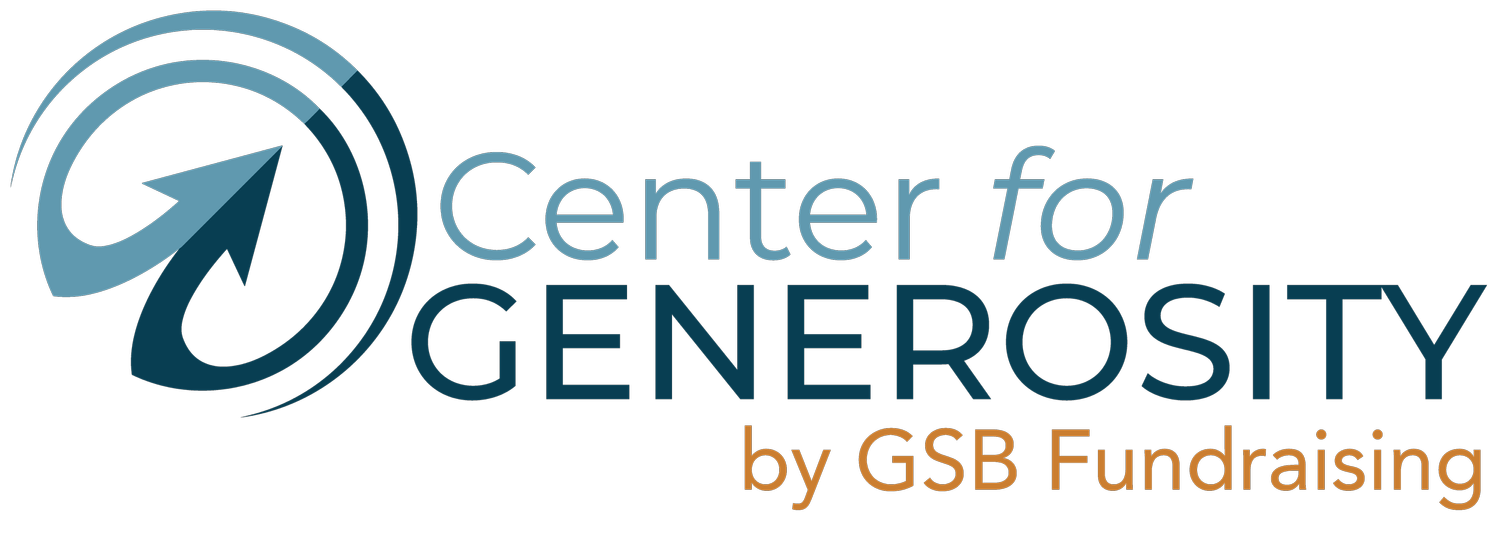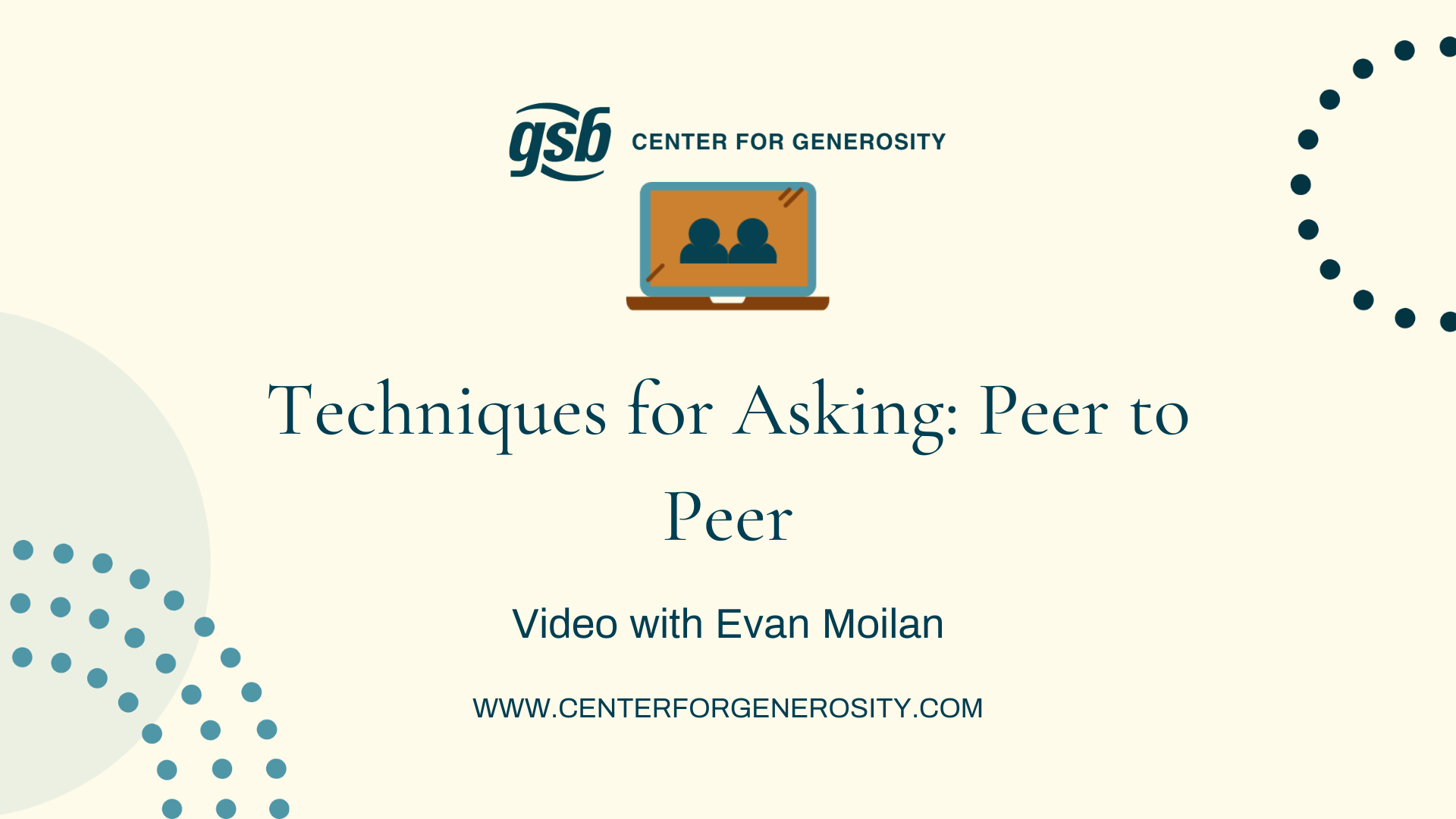Resource Library
Search by Topic
- 10 Steps of Fundraising
- Acknowledgements
- Annual Fund
- Appeal Letters
- Board Governance
- Capital Campaigns
- Case Development
- Challenge Gifts
- Congregation Governance
- Congregations
- Crisis Management
- Database
- Development Councils
- Development Plan
- Donor Relations
- Executive Leadership
- Giving Trends
- Gratitude
- Human Resources
- Lapsed Donors
- Major Gifts
- Marketing
- Matching Gifts
- Mission
- Non-Profits
- Planned Giving
- Public Relations
- Recurring Giving
- Samples
- Self-Care
- Special Appeals
- Special Events
- Stewardship
- Stewardship Appeal
- Storytelling
- Strategic Planning
- The Ask
- Theology
- Tributes
- Volunteers
- Wealth Screen
- Websites
- Youth Fundraising
The Case for Support
Much of the time fundraisers ask, “How do we get more people to contribute?” Let’s start with a different question: “Why would anyone want to give money to us?” In this roundtable, we’ll talk about the critical foundation of knowing your own story and how to build the case for support in a way that will inspire people to join in. When you have a strong case for support, people catch the vision for the difference your work is making and they want to be part of it. This session is the first in a four-week series on Annual Funds.
Giving Your Donors Tangible Stuff
Non-profit leaders often wonder what type of gifts they should consider giving to their donors. There is a place for this, but making it special and not expected are two key items we will explore.
Next Year's Goals for Congregational Leaders
Why would someone increase their giving to your congregation in the coming year? When people think that you will do the same ministry next year, they will plan to give the same amount. We will discuss how clear ministry goals energize people to expand their generosity to make bold things possible.
Do you fear, or hope a capital campaign is in your future?
The general public probably thinks “capital campaign” whenever non-profit fundraising is spoken of. Whereas that may have once been somewhat accurate, we know the capital campaigns, in the operation of a well-established and non-profit is more likely an occasional occurrence in the scope of the agency’s development program. That being true, the question remains, “How do we prepared for our capital campaign? The roundtable will focus on a few core preparation fundamentals that are true for most any agency, church related, non-sectarian, mega organization, small non-profit. The discussion of these fundamentals will target only a few topics: Project design and case development Donor readiness and cultivation Institutional capacity (staff, systems, board readiness) Public/constituent conditioning
Feasibility Study Outline
Fundraising ventures are most always undertaken with one central focus – to meet the financial goal of the effort and thereby meet the needs of the organization or agency that are dependent on the receipt of charitable gifts. The greater the financial need and the proposed goal to meet it, the higher the stakes for success and, possibly the higher the degree of uncertainty regarding the viability of the goal. A feasibility/readiness study (herein referred to as “feasibility study) has as its primary goal to determine potential to meet the proposed financial goal.
Techniques for Asking One-to-One
Fundraisers say the most intimidating responsibility they bear is making personal, individual asks for financial contributions. What should I say? How do I transition from small talk to asking for their financial support? What if they say no? If the thought of asking someone to give a specific amount to your organization or cause leaves you tongue-tied or hyperventilating, join us for a round table discussion for guidance that will equip you for your next donor meeting and tips to help minimize those sweaty palms and sleepless nights.
Inspiring Volunteers
Once we have recruited volunteers, we must inspire them every time they walk through our doors so that they are effective advocates for our mission. Join us as we discuss how to provide ample orientation, continuing education and support so that our volunteers feel the appreciation they are due.
Evaluating the Fundraising Effort
Taking time to reflect on how we have done leads to more effectiveness as we continue our efforts. It is important to see what works, what is lagging, and where it is worth investing time and resources.
Techniques for Asking: Cottage Meetings
Cottage meetings are small, brief and intimate events held at a donor’s home. Cottage meetings are a wonderful way to inform and inspire major donor prospects, setting the stage to invite a first gift or upgraded gift. Cottage meetings also work as a way to encourage a sense of community among donors. We will discuss what cottage meetings look like, who should be involved and how to conduct effective follow up.
Donor Stewardship
You have a donor, how do you keep them? Taking care of building and growing a relationship is a center-piece of any development department.
Staff Care and End of Year Evaluation
Most of the world sets resolutions or goals at the start if the year. Before you can do that, it is helpful to evaluate how you did on your 2021 goals. In addition, like 2020, 2021 has been a difficult year. Checking in on staff and providing staff care can go a long way to staff retention and success for the new year. Burned out staff have trouble setting and owning goals that will take the organization to the next phase or level. In this roundtable we will discuss ways to provide much needed staff care that improves and informs a true end of year evaluation.
Giving in 2021: What happened and how do we use the data
After a highly episodic charitable year in 2020, how did giving change as donors navigated a second year of Covid-19 implications? Join us as we review findings from Blackbaud Institute’s early report on 2021 donor behavior and determine how to apply that data to strengthen our own fundraising efforts through the rest of 2022.
Techniques for Asking: Peer to Peer
The #1 reason anyone makes a charitable gift in the U.S. is because they were asked. #4 is because they care about the person who is asking. Peer-to-Peer giving engages the power of influence from those who already care for your organization, to engage new donors and extend your reach and impact. In this session we’ll talk about: -The fundamentals of Peer-to-Peer -Tools available to make Peer-to-Peer available to every organization regardless of size -Leveraging reasons #2 & 3 and other keys to success -Conversion of new donors into giving beyond Peer-to-Peer
Biblical perspectives of fundraising
When talking about fundraising in a church or faith-based organization, we often hear, "This is the church. We shouldn't talk about fundraising. We're about faith!" Churches and faith based organizations can greatly benefit from the foundational principles of non-profit fundraising without sacrificing a good theology. When they dismiss these principles out of hand, they do it to their detriment. Utilizing the work of Henri Nouwen, Jesus, and the Apostle Paul, this roundtable will provide Biblical and theological connections between faith communities and fundraising. This frees churches and faith-based organizations to grow in generosity without sacrificing their core beliefs.
Techniques of Asking: Social Media
Social media will not save your fundraising, but it can hurt it if it isn't done well. Simply throwing a donate button out there and asking for people to give will likely damage the relationship. Social media is also more than a single post. It is a curated effort to build relationships and emotional connections to your mission. In this roundtable, we will talk about the Dos and Don'ts of social media. We will talk about how to build trust and brand. We will talk about how to cultivate followers and turn them into donors.
Challenge and Matching Gifts
Challenge and matching gifts will stimulate a response from additional donors and help move some donors to higher levels. They also assure larger donors that your organization is worthy of major investment.
Volunteer Retention
Volunteers are crucial to our mission and ministry. Volunteers supplement our Human Resources and serve as our advocates in the community. Much like donors, we must make an effort to retain our volunteers. In this roundtable, we will discuss how volunteer recruitment sets the table for a successful volunteer relationship, as well as different methods to keep our volunteers engaged in our mission and ministry.
Fundraising Hacks: Leveraging Tech to bring Efficiency
Tech can bring efficiency and impact to your organizations development efforts...and it's not always as expensive as you think. Evan Moilan, CFRE will open the conversation sharing his 5 favorite tech hacks. Participants are invited to bring your favorite tech hack to share with the group.
Day of Giving
Events take a lot of energy. Often the return on the investment is low. With a single Day of Giving event, instead of spending tons of money on venues, entertainment, and food - you spend your energy on building relationships with donors. You connect with them on a personal level and use the day to tell your story and ask for them to respond generously. Day of Giving events are an excellent way to foster recurring gifts. They don't "just happen" though. They take thought, intentionality, and volunteer coordination. In this roundtable we will break down the questions you need to ask yourself to determine if a Day of Giving will work for you and if so, what are the basic starting points for making it a reality.
Building your annual gratitude plan
It is important to show gratitude to your donors. Do you have a system? Do you track how you say thanks? This session shows how to improve your gratitude plan.




















